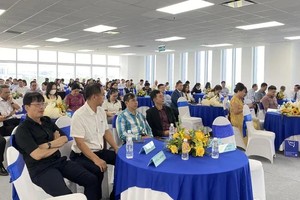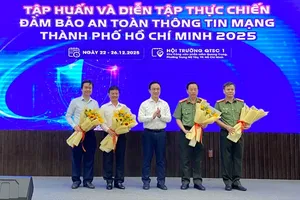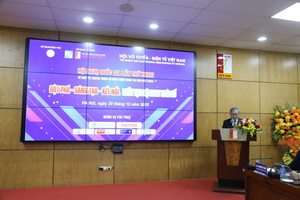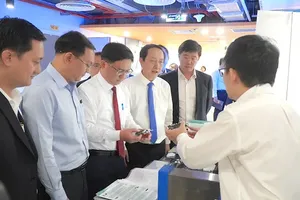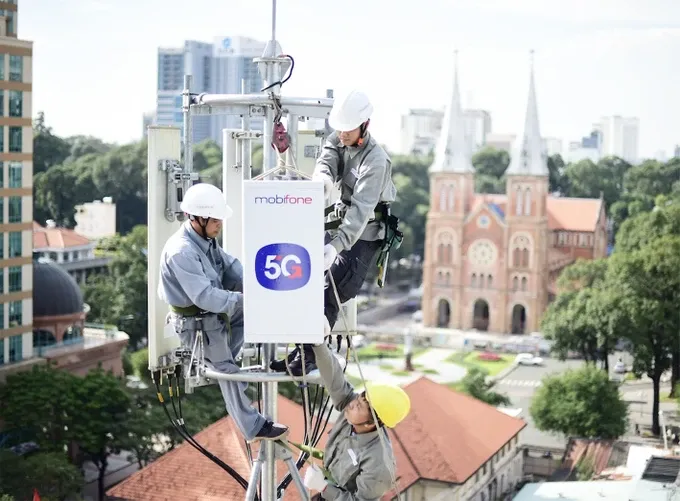
High-speed internet access packages on the 5G network, with connection speeds of hundreds of Mbps, could be the first services that end-users experience immediately.
However, telecommunications providers have said that they are still planning their business strategies and will offer 5G services to the domestic market in 2024. They further added that they are developing suitable data packages for individuals and businesses, mostly in large cities and provinces, to exploit this impressive connection speed in smart applications.
MobiFone shared that besides multiple data packages, it offers several value-added services according to the number of 5G stations in each locality. However, in less dense or low-income areas, it is rather challenging to provide such services due to limitations in 5G infrastructure.
It seems that this hesitation is far different from 2022, when telecommunications providers raced to deploy 5G pilot projects nationwide. This shows that they are very cautious about commercializing 5G because commercialization is the start of the competitive race.
"Investing in 5G requires large capital, which affects investment mechanisms and business operations. Therefore, deploying 5G is not only a matter of whether the technology is ready or not, but also lies in the business model and system management," said Mai Liem Truc, former Permanent Deputy Minister of Posts and Telecommunications (now Ministry of Information and Communications).
Director of Ericsson Vietnam Rita Mokbel stated that since 2015, Ericsson's products have been ready for 5G deployment, with over 10 million 5G-ready base stations shipped. The company will leverage its regional and global deployment experience and strong technology to support the smooth rollout of wide-area 5G in Vietnam.
“In addition to gaining new customer segments and additional revenue, we are also seeing significant benefits from 5G in reducing current operating costs for telecommunications providers. For example, with 5G technology, the network can handle 10 times the capacity, reducing energy consumption by 30 percent. As data traffic continues to increase rapidly in Vietnam, 5G will meet this demand and significantly reduce energy consumption costs”, said Director Mokbel.
To expedite 5G coverage and commercialization, telecommunications experts advocate for upgrading existing 4G stations to 5G. In the initial phase, 5G technology will enable domestic service providers to deliver enhanced mobile broadband experiences to users, boost network capacity to handle the ever-increasing data traffic, and pave the way for future services that align with the true speed value of 5G.
The Prime Minister has approved the 2021-2030 Information and Communication Infrastructure Planning for Vietnam, with a vision towards 2050. The plan sets ambitious goals for 5G network performance:
- By 2025: achieve an average minimum download speed of 100 Mbps for 5G networks (compared to the average 30-40 Mbps for 4G);
- By 2030: ensure 5G network coverage reaches 99 percent of the population.
To achieve these targets, 2024 is considered a pivotal year for granting commercial 5G spectrum licenses. The Ministry of Information and Communications has also identified 2024 as the year for the widespread upgrade of digital infrastructure to possess ultra-large capacity and ultra-wide bandwidth, as well as ensure universal and sustainable coverage.










